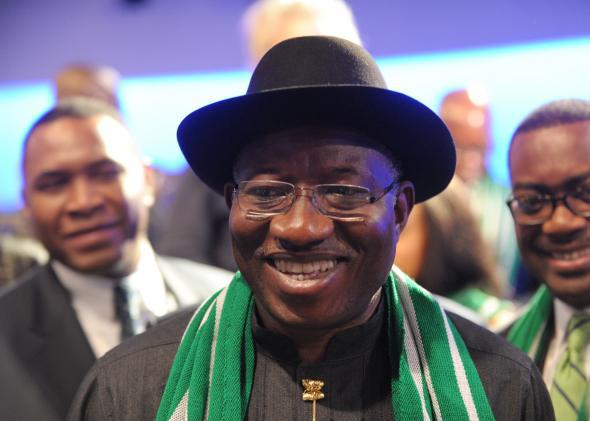Since Nigerian President Goodluck Jonathan stealthily signed the anti-gay Same Sex Marriage Prohibition Act into law on Jan. 7, the consequences have been predictably dire. Police in the northern state of Bauchi arrested 38 men they suspected of being gay, following leads they had obtained from four alleged gay men who were tortured into naming “gay people they knew in the area.” Eleven men are said to be on trial in an Islamic court “accused of being homosexuals” in Bauchi—one of the nine Nigerian states where shariah law also applies—they face being stoned to death if they are found guilty. Earlier this week, the AP reported that “thousands of protesters threw stones” into the court where the 11 men were being held, urging their “speedy convictions and executions.” These detentions are not limited to the predominantly Muslim north of Nigeria, however. Amnesty International reported arrests across the country.
Human Rights Watch called upon President Jonathan to repeal the law, pointing out the many ways it threatens basic rights. (In my own limited experience of Nigeria—a 10-day trip during the 2007 election campaign—I was struck by citizens’ obsession with the rights guaranteed to them under the constitution.) But what can ordinary Americans do to help overturn this legislation?
Last week, the Coalition for the Defense of Sexual Rights, a Nigerian group that fights for LGTBI rights (the I stands for intersex), put out a statement advising international allies how best to help them. The coalition encouraged “firm but quiet diplomatic action to stop the implementation of the law,” through private communications and letters to President Jonathan and other Nigerian politicians. Most crucially, though, the coalition asked that there be no talk of or threats “in public or private discussion” of “aid cutting, economic sanctions and embargoes.” Outsiders should also take pains, the coalition wrote, to avoid any advocacy “being perceived as intruding into domestic affairs in Nigeria.”
Given the hay that besieged politicians like Zimbabwean President Robert Mugabe have made by attacking gays and the Western nations that defend their rights, this is probably wise. If only the Western religious groups that are often behind campaigns to further criminalize gay behavior in Africa would tend their own gardens.
